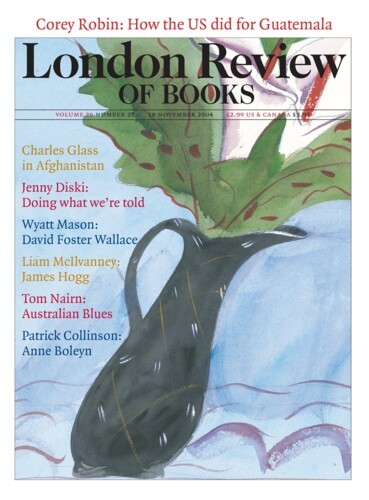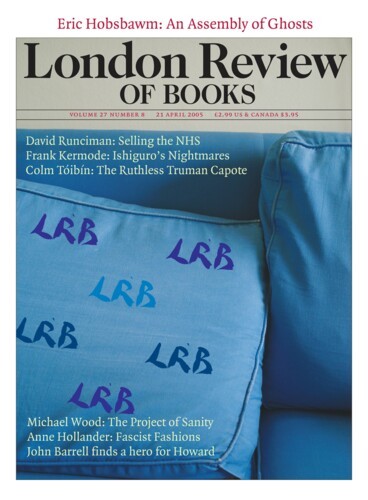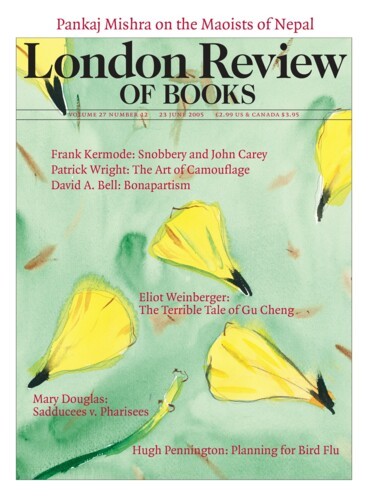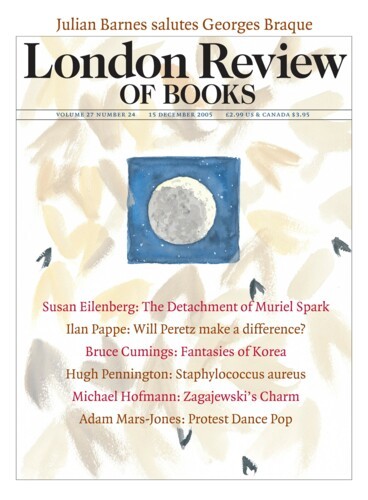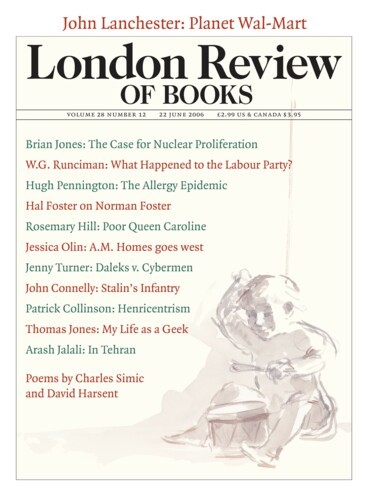Wandability: supermarkets
Hugh Pennington, 18 November 2004
Joanna Blythman does not like supermarkets. The bigger they are, the greater her hatred. She says they are responsible for the slow death of community life. They take the skill out of shopping. They subvert home cooking. They have done away with seasonal variety. Their buyers are bullied by their superiors to bully their suppliers. Supermarkets have an obsession with hygiene at the expense of...
